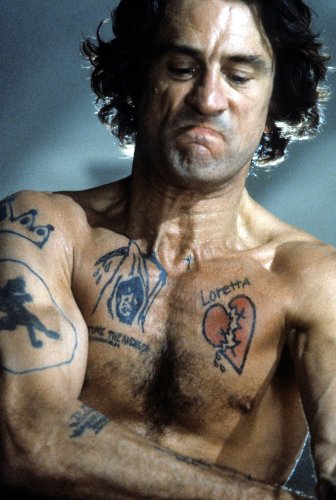The remakes
by Paolo Valassi
The film industry, especially the American one, has not been very fond of risk and experimentation since the 1930s.
Everyone wants to play it safe: when a blockbuster is hit, it is exploited to the full through the mechanism of seriality. Other times, to make up for the lack of new ideas, old scripts are exploited.
Usually remakes are mediocre films: how can we forget (in reality, we succeed very well) the remakes of Psycho, Ben Hur, Solaris, Planet of the Apes...?
However, there are high-level examples: The Man Who Knew Too Much, Scarface, The Magnificent Seven, Ocean's Eleven, The Departed, A Fistful of Dollars and Cape Fear.
The latter is an excellent example of a remake that is clearly superior to the original because it does not limit itself to copying the story but adds new ideas, unknown complexities and a different stylistic figure.

In 1962 Gregory Peck and Robert Mitchum star in Cape Fear.
Peck is a lawyer who has convicted the criminal Mitchum. When Mitchum is released from prison, he wants to make him pay and threatens the lawyer and his family, the classic mid-class American family with a wife and daughter, a terraced house with a garden and a station wagon parked in the driveway.
No frills, no neurosis. The roles are clear: the good guy on one side and the bad guy on the other. There is no room for error.
In 1991 Martin Scorsese remade the film and called it Cape Fear.
The “good guy” is Nick Nolte, the “bad guy” is Robert De Niro. The lawyer, the public defender of the “bad guy”, committed a serious ethical but also criminally prosecutable mistake: he did not bring to court all the evidence that would have helped ease the trial position of his client, a psychopathic rapist. When De Niro gets out of prison, he wants to make him pay.
The roles are not clear: the "bad guy" has his reasons, the "good guy" is not so good, the wife is neurotic, the daughter does not disdain the morbid attentions of the "bad guy".
Furthermore, and the message is clear, Scorsese has the role of Nick Nolte's lawyer (the good guy in this film) played by Robert Mitchum (the bad guy in the first film) and De Niro's lawyer (the bad guy in this film) by Gregory Peck (who was the good guy in the first film).
De Niro and Scorsese deserved an Oscar (not received).